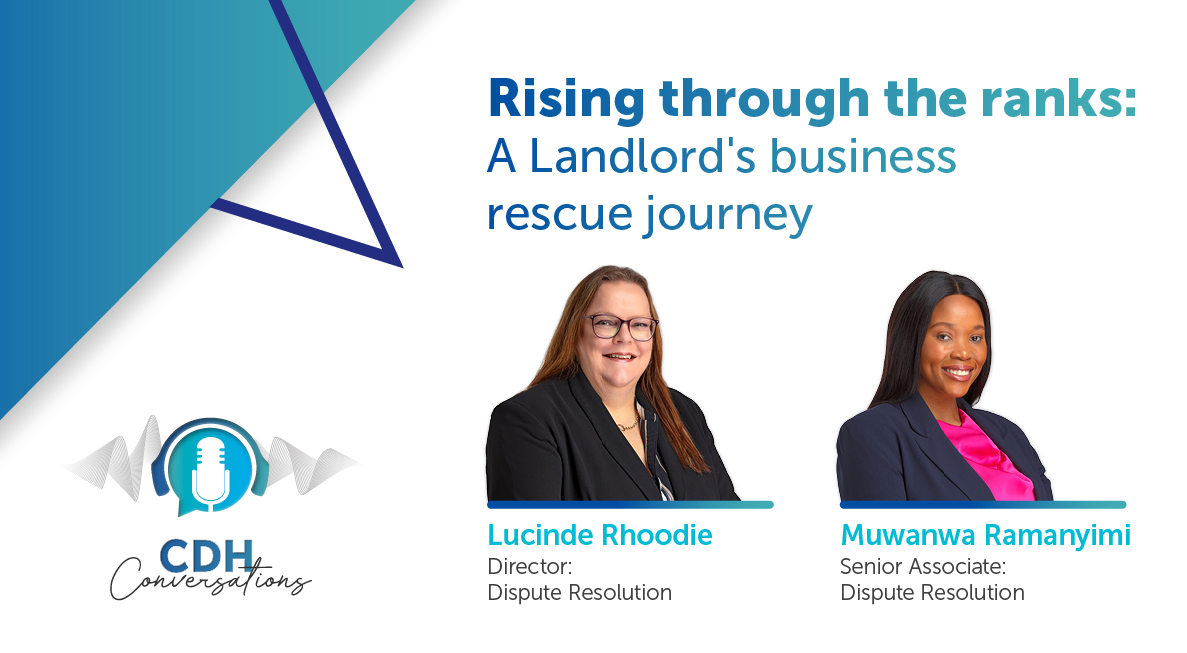Payment on demand? A consideration of on demand guarantees
At a glance
- Performance guarantees in construction projects are often formulated as "on demand" guarantees, allowing the employer to call up the guarantee regardless of any contractual disputes.
- The courts generally uphold on demand guarantees and are hesitant to interfere with payment calls, considering them vital to commerce.
- In a recent case, the Supreme Court of Appeal confirmed that technical discrepancies within a group of companies calling up a guarantee do not render it unenforceable, emphasizing the importance of complying with the guarantee's terms and taking the appropriate steps.
Our courts have long held that on demand guarantees are “the lifeblood of commerce” and should not lightly be subjected to judicial interference. The terms and requirements to call up an on demand guarantee are normally limited, for example the allegation by the employer that the contractor has breached the contract, and then certain procedural aspects need to be complied with, for example ensuring that the notice calling up the guarantee is correctly addressed and served on the bank (within any specified time period). Provided these relatively simple requirements are met, the bank is obliged to pay on the guarantee.
In a recent appeal from the Gauteng Local Division of the High Court, the Supreme Court of Appeal (SCA) in the case of Millenium Aluminium and Glass Services CC and Others v Group Five Construction (Pty) Ltd and Another (693/2021) [2022] ZASCA 180 (14 December 2022) was called upon to determine whether Group Five Construction complied with its requirements when calling for payment under an on demand guarantee. In so doing, the court again considered the long-standing principles in relation to on demand guarantees.
Background
Group Five Construction was appointed to carry out the Pearls of Umhlanga – Pearl Sky project in Durban, as the building contractor. Acting as an agent of Group Five Construction, Group Five Coastal (Pty) Ltd appointed Millenium as a subcontractor on the project. The JBCC Series 2000 Nominated/Selected Sub-contract Agreement, Edition 5.0 of 2007, governed the relationship between Group Five Construction and Millenium, where, amongst other things, Millenium was required to provide performance guarantees in favour of Group Five Construction. Accordingly, Millenium obtained and provided such a guarantee from Constantia Insurance Company Limited.
The guarantee
In the construction guarantee, the guarantor was defined as Constantia Insurance Company, the contractor was defined as Group Five Coastal acting as agents for Group Five Construction, and the sub-contractor was defined as Millenium.
Clause 4 of the guarantee set out the instances in which Constantia would be required to honour the guarantee. It stated that the contractor must issue a written demand to the subcontractor notifying them that payment has not been made in terms of the agreement and should payment not be received within seven days, the contractor will call upon the guarantor to make payment (clause 4.1). Thereafter the contractor must issue a written demand to the guarantor at its domicilium, with a copy sent to the subcontractor, informing them that the period of seven days has lapsed, payment has not been received and that the contractor demands payment from the guarantor (clause 4.2). The guarantor must also be provided with the payment advice which entitled the contractor to receive the payment under the agreement (clause 4.3).
The demand
Group Five Coastal issued a payment certificate to Millenium and called upon it to pay the amount within 21 days. When Millenium failed to pay, Group Five Coastal sent a written demand requiring payment in seven days pursuant to clause 4.1 of the guarantee. Attached to the demand was a payment certificate and reconciliation statement issued by Group Five Coastal, but under its new trading name, Group Five KZN (Pty) Ltd. When Millenium again failed to pay, Group Five Coastal, acting on behalf of Group Five Construction, sent a written demand to Constantia pursuant to clause 4.2 of the guarantee. When Constantia failed to pay, Group Five Construction approached the High Court in an attempt to enforce payment of the guarantee.
Before the High Court
Constantia did not oppose the application. Millenium opposed the application arguing that the demand by Group Five Construction on Constantia was not properly made as the payment certificate was issued by Group Five KZN which was not a party to the construction contract nor the guarantee. Accordingly, it argued that since the payment advice was made by Group Five KZN, and not Group Five Construction, Constantia was not obliged to pay.
The High Court rejected Millenium’s argument, holding that Group Five KZN and Group Five Coastal were the same company with the same registration number, with Group Five Coastal having simply changed its name to Group Five KZN. The court went further and noted that in terms of the guarantee Group Five Coastal acted as agents for Group Five Construction, and therefore any document issued by Group Five Coastal was effected as the agent for Group Five Construction. As a result, when Group Five Construction sent the demand to Constantia it did so in compliance with clause 4 of the guarantee, and the High Court ordered Constantia to pay Group Five Construction the amount claimed. Millenium appealed the decision to the SCA.
Before the SCA
At the SCA, Millenium argued that strict compliance of demand guarantees is required, and that since the payment certificate and reconciliation statement was not in the name of the contractor as defined in the guarantee, the High Court ought to have found that the requirements of the guarantee were not met.
The SCA pointed out that payment of a guarantee is not “affected by the relationship between other parties to the transaction that gave rise to the issue”. Instead, the issue for determination was whether there was compliance with the guarantee where an entity that made the demand on guarantee was not the same entity that issued the payment certificate and reconciliation statement. Clause 4.1 states that a written demand must be issued by the contractor to the subcontractor, stating that the amount certified in a payment advice was not paid. The payment advice was issued by Group Five KZN (Group Five Coastal), acting as the agent for Group Five Construction. In terms of clause 4.2 and 4.3 the payment advice was sent with an on demand guarantee made by Group Five Coastal on Constantia. There was no doubt Constantia knew the identity of the contractor as it had issued the guarantee and the payment advice specifically referred to the project, Pearls of Umhlanga – Pears Sky, and identified the subcontractor as Millenium.
The SCA accordingly dismissed Millenium’s appeal, holding that Group Five Construction had met the requirements in order to rely on the guarantee and as a result was entitled to payment under the construction guarantee from Constantia.
Point of interest
This case, once again, evidences that the courts are loathe to interfere with a call for payment under an on demand guarantee. In this particular case, the court adopted a pragmatic approach in finding that technical discrepancies in relation to the entity (within a group of companies) calling up the guarantee was not sufficient to render the guarantee unenforceable.
Naturally, to avoid the risk of a call on an on demand guarantee being unsuccessful, is important for parties to comply fully with the terms of the guarantee and to ensure harmony between the terms of the guarantee and the steps taken (and by which party) under the guarantee.
The information and material published on this website is provided for general purposes only and does not constitute legal advice. We make every effort to ensure that the content is updated regularly and to offer the most current and accurate information. Please consult one of our lawyers on any specific legal problem or matter. We accept no responsibility for any loss or damage, whether direct or consequential, which may arise from reliance on the information contained in these pages. Please refer to our full terms and conditions. Copyright © 2026 Cliffe Dekker Hofmeyr. All rights reserved. For permission to reproduce an article or publication, please contact us cliffedekkerhofmeyr@cdhlegal.com.
Subscribe
We support our clients’ strategic and operational needs by offering innovative, integrated and high quality thought leadership. To stay up to date on the latest legal developments that may potentially impact your business, subscribe to our alerts, seminar and webinar invitations.
Subscribe



